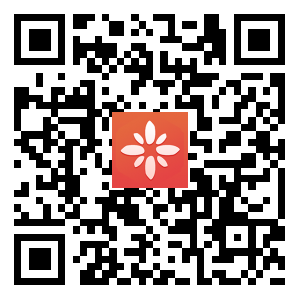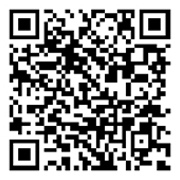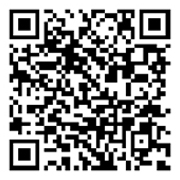翻译硕士英语
阅读理解
● 第一篇:NERM睡眠
● 第二篇:有关鹿的增减
● 第三篇:电商
● 第四篇:Stan LEE
作文
有些人觉得AI能够给人们带来便利(好像是),但其他人就担心人们还没有准备好迎接电脑AI还要比人聪明的世界,你怎么看。
附:阅读理解选段
PERHAPS HE WASN’T born with superhero powers, like the X-Men—or the god Thor, for that matter. Perhaps he didn’t acquire them from a radioactive-spider bite (Spider-Man) or from studying the mystic arts (Doctor Strange). All the same, Stan Lee certainly had them! In his autobiography, graphic of course, they dazzled like sun-rays round his head. (He needed those tinted glasses he wore.) Waves of energy shook from his shoulders. For he was the man who had thought up those characters. He had brought Marvel Comics back from the dead, and with it the whole industry of comics, so that far from being something cheap and childish, which your parents didn’t want you to read, they became grown-up too! And wildly popular! And took over Hollywood, and with it the whole of American pop culture, earning revenues in the billions and billions of dollars! Phe-ee-ew.
But then his superheroes, and his supervillains too, had problems and lived in the real world, unlike the cut-out cardboard creatures that ruled the genre until he chanced along. In fact you might not notice they had powers at all. Like Reed Richards of the Fantastic Four, a nerdy scientist, who when pitted against Doctor Doom and his robot army could spool out into any length and shape! Or Peter Parker, just another adolescent worried about spots and girls, who when the Green Goblin loomed was suddenly Spidey, scaling skyscrapers and running across ceilings! Or Ben Grimm, a Jewish scrapper from Yancy Street who became the rocky orange bruiser known as the Thing, yelling “Clobberin’ time!”
So you would never have suspected anything of Stanley Leiber as he was growing up poor in Manhattan, with his father out of work, living on hot dogs and wandering the streets alone in summer while his friends were away at the camps his parents couldn’t afford. But he could feel that inner strength stirring! It came from words. He read and read and read. Adventure tales, Mark Twain, Jules Verne, Zola, Dickens, Shakespeare. He loved the sound of words, the music of vowels and consonants jostling each other. Inside him, he really believed, lay the Great American Novel!
Yet he stumbled into comic-book writing instead, at Timely Comics, Marvel as it became. And wallowed in embarrassment! People scorned him for his silly trade. On the literary totem pole in New York Stanley Lieber was the lowest of the low. Yet they did not know—even he did not know!—that as soon as he had signed himself “Stan Lee” on his first bit of text-filler in 1941, hiding himself as he thought, he was putting on his superhero clothes! Once the bright beams of his new ideas had dazzled his boss at Marvel (it took a while), nothing stopped him! Pulse-pounding characters flowed from him all the time. He could write five books a week. Sales of Marvel’s titles rose from 18.7m in 1961 to 32m in 1965 until DC Comics, and Superman and Batman, were stunned and reeling! Stan Lee’s legions of fans and true believers were exhorted to march onwards, shouting his watchword “Excelsior!” To the highest!
He revelled in his powers. These creations were not only living, breathing people, with the thought-balloons he had invented bubbling from their troubled heads. They also had their own words, their own melody, from the poetic turns of that sleek spacefarer, the Silver Surfer (“I, too, sense the icy touch of dread disaster!”) to the Shakespearean tones of Thor (“Whither goest thou?”) He resurrected Captain America, an old favourite, pulling him out of the Arctic ice cap to save the world again. He defied the massed sniffing prudes of the Comics Code Authority by writing about racism and drug abuse, until they capitulated! The X-Men, erupting in his brain in 1963, spoke for all outcasts, black, gay, disabled, who felt like mutants. But he challenged hippies and peace-marchers just as much by making them love Iron Man, a billionaire arms-maker, as a hero and not a villain! (That would have been too easy.) He had heroes who fought against themselves, like Dr Bruce Banner, who became that livid green monster, the Incredible Hulk! And tried to cure himself, but the Hulk didn’t agree! Right out of a Greek tragedy. Or maybe Freud.
Of course, there were trials to overcome. Two of the best artists, Jack Kirby (Fantastic Four, Silver Surfer) and Steve Ditko (Spiderman, Doctor Strange), felt uncredited and fell out with him. (Well, he was certainly grabbing most of the attention! And who said heroes always got on with one another?) Marvel’s fortunes fell in the 1980s and early 1990s, like those of comic books generally. His attempts to put his characters on TV mostly failed, because directors made them too one-dimensional. An internet company ended badly. It was Hollywood, and the Spider-Man and X-Men series in particular, that turned his luck right round again!
If there was a supervillain in his story, it was that other Green Goblin, dollar bills! Commercial worries often held back his ideas. He was careless with money, and Marvel gave him no royalties. He held no rights to his characters until, in 2001, he set up POW! (Purveyors Of Wonder!) Entertainment. Even so, he spent too much of his last years in lawsuits over percentages from TV and films. He wasn’t poor, of course! Just wanted his powers to be recognised.
No wonder he loved to take cameo parts in the hugely grossing films that featured his creations! While they fought to the death in the vicinity he played a FedEx delivery man, or a security guard, or a man watering his lawn, or a passenger reading “The Doors of Perception” on a city bus. He was the most ordinary person you could imagine! And yet, through his ideas, superheroically immortal.
This article appeared in the Obituary section of the print edition under the headline "Prepare to be astonished!"
英语翻译基础
词条汉译英
● 双一流
● 精准脱贫
● 习近平新时代中国特色社会主义思想
● 中国锦鲤
● 一口办理
● 滴滴整改
● 四价流感疫苗
● 戏精
● 阴阳合同
● 脸部识别技术
● 共有产权住房
● 博鳌亚洲论坛
● 和合共生
● 沪港通
词条英译汉
● TPP
● IMF
● AAIIB
● CBD
● YOLO
● CICA Summit
● generation X
● management buy-outs
中译英
习近平:推动形成全面开放新格局。开放带来进步,封闭必然落后。中国开放的大门不会关闭,只会越开越大。要以“一带一路”建设为重点,坚持引进来和走出去并重,遵循共商共建共享原则,加强创新能力开放合作,形成陆海内外联动、东西双向互济的开放格局。拓展对外贸易,培育贸易新业态新模式,推进贸易强国建设。实行高水平的贸易和投资自由化便利化政策,全面实行准入前国民待遇加负面清单管理制度,大幅度放宽市场准入,扩大服务业对外开放,保护外商投资合法权益。凡是在我国境内注册的企业,都要一视同仁、平等对待。优化区域开放布局,加大西部开放力度。赋予自由贸易试验区更大改革自主权,探索建设自由贸易港。创新对外投资方式,促进国际产能合作,形成面向全球的贸易、投融资、生产、服务网络,加快培育国际经济合作和竞争新优势。
英译中
THE stranger who would form a correct opinion of the English character must not confine his observations to the metropolis. He must go forth into the country; he must sojourn in villages and hamlets; he must visit castles, villas, farm-houses, cottages; he must wander through parks and gardens; along hedges and green lanes; he must loiter about country churches; attend wakes and fairs, and other rural festivals; and cope with the people in all their conditions and all their habits and humors.
中译英
外国人若欲对英国人的特性有一个正确认识,切不可将视野局限于都市。他须深入乡间,逗留于大小村庄;游览城堡。别墅、农房、村舍;漫步园林;沿树篱和青葱小道缓缓而行 ;流连于乡村教堂,参加教区节庆、定期集市等乡村节日,并与身份、习惯和性格各异者交往。
汉语写作与百科知识
● 音频交互技术
● 软体机器人
● 人工智能
● 元宵节
● 寒食节
● 清明节
● 端午节
● 七夕节
● 诗经
● 楚辞
● 三国演义
● 西游记
● 红楼梦
● 聊斋志异
● 四个全面
● 三严三实
● 两学一做
小作文
就福州市举办中美人士联谊活动写一篇致辞。
大作文
就"改革开放40年"写一篇议论文。
福建师范大学翻译硕士初试备考经验
今年的福建师范大学翻译硕士初试算是打了大家一个措手不及,其实早有预感。《凯特·肖邦作品选》付梓,标志着从2012年起至2018年连续7年的“Bayou Folks”从此退出了历史舞台。那么退出历史舞台之后,福建师范大学翻译硕士初试的命题趋势会有哪些变化呢?以英语翻译基础、汉语写作与百科知识为例说明。
一、文学翻译、时政翻译依旧是考试主流
作为师范大学,文学翻译是绕不开的话题,“师范大学”顾名思义,教书为本,若一位文科类教师一点文学修养没有,那枉费了文科生、教师这两个光荣称号;时政类文章也是考试热点。翻译硕士和CATTI相比,CATTI偏重翻译这个行业;翻译硕士的有些部分还是同英语专业本科知识相承接。本科英语专业学得最多的两大翻译就是文学翻译和时政翻译,而“师范大学”终究不是“财经/经贸大学”或者“科技/理工大学”,因此除了文学和时政两块,其它命题的角度比较小。
二、英语翻译基础的考试难度会逐渐向南京师范大学、湖南师范大学等211学校靠拢
自2017年起,福建师范大学翻译硕士在初试时开始抹去它原本的备考特色,增加考生备考的复习难度。既然抹去了备考特色,考生在备考时要更重视“以不变应万变”,即以不变的翻译套路去应对变换的题目,要紧跟China Daily英语点津,但是初高中的文科术语也不能扔掉。例如今年的缩略语翻译CBD(中央商务区)是出自高中地理课本必修二第二单元。
三、百科知识呈现“夹生饭”趋势
把福建师范大学2018年以前(含2018年)的真题和其它学校的对比,可以说福建师范大学的题目是一股不按常理出牌的“泥石流”。但是今年开始,福建师范大学出题出现了正规化的迹象,同其它211学校、外语类学校出题方式并无太大区别,百科名词解释题既紧跟时事热点又保证了所有的考生都“有话可说”。而“三严三实”、“两学一做”虽然不是最新热点,但是近些年要常常讲、时时讲,也是热点之一。
四、议论文写作陷阱丛生
应用文写作、议论文写作的伸缩性更加明显,更突出了人尽其才的特点。对比2018年,发现2019年的议论文写作题目更接地气,区分度更明显。即小学生、初中生、高中生、本科生、硕士生、博士生、文学爱好者、作家、社会学家、历史学家人人都有话写,但是每个人的角度各不相同。考生一定要摆正自己的定位,切不可以硕士生的身份,用高中生的思维去写硕士生考试的议论文。
由此往后,揭开了福建师范大学翻译硕士命题规律的新篇章,考生一定要重视起来,要把福建师范大学当成同大连外国语大学、苏州大学、扬州大学、宁波大学同等位次的大学来对待,不可等闲而视之。
- 还没有人评论,欢迎说说您的想法!



